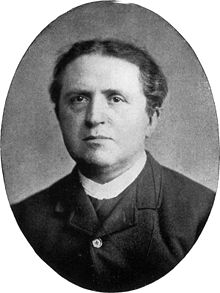
Back Soberanía de la esfera social Spanish Sovranità delle sfere Italian 영역 주권 Korean Soevereiniteit in eigen kring Dutch
| Part of a series on |
| Christian democracy |
|---|
 |
|
|

In neo-Calvinism, sphere sovereignty (Dutch: soevereiniteit in eigen kring), also known as differentiated responsibility, is the concept that each sphere (or sector) of life has its own distinct responsibilities and authority or competence, and stands equal to other spheres of life. Sphere sovereignty involves the idea of an all encompassing created order, designed and governed by God. This created order includes societal communities (such as those for purposes of education, worship, civil justice, agriculture, economy and labor, marriage and family, artistic expression, etc.), their historical development, and their abiding norms. The principle of sphere sovereignty seeks to affirm and respect creational boundaries, and historical differentiation.
Sphere sovereignty implies that no one area of life or societal community is sovereign over another. Each sphere has its own created integrity. Neo-Calvinists hold that since God created everything "after its own kind," diversity must be acknowledged and appreciated. For instance, the different God-given norms for family life and economic life should be recognized, such that a family does not properly function like a business. Similarly, neither faith-institutions (e.g. churches) nor an institution of civil justice (i.e. the state) should seek totalitarian control, or any regulation of human activity outside their limited competence, respectively.
The concept of sphere sovereignty became a general principle in European countries governed by Christian democratic political parties, who held it as an integral part of their ideology.[1] The promotion of sphere sovereignty by Christian democrats led to the creation of corporatist welfare states throughout the world.[2]
- ^ Domenico, Roy P.; Hanley, Mark Y. (1 January 2006). Encyclopedia of Modern Christian Politics. Greenwood Publishing Group. p. 102. ISBN 978-0-31332362-1.
It is rooted in the European Christian democratic tradition, particularly as developed in the Netherlands by Guillaume Groen van Prinsterer (1801–76), Abraham Kuyper (1837–1920), and Herman Dooyeweerd (1894–1977). The principle of "sphere sovereignty" or what has more recently come to be called "differentiated responsibility," is the most characteristic feature of this tradition and undergirds a nonliberal approach to the limited state.
- ^ Bak, Hans; Holthoon, F.L. van; Krabbendam, Hans; Edward L. Ayers (1 January 1996). Social and Secure?: Politics and Culture of the Welfare State: a Comparative Inquiry. VU University Press. ISBN 978-905383458-9.
The Christian democrats promoted a corporatist welfare state, based on the principles of the so-called "sphere sovereignty" and "subsidiarity" in social policy.